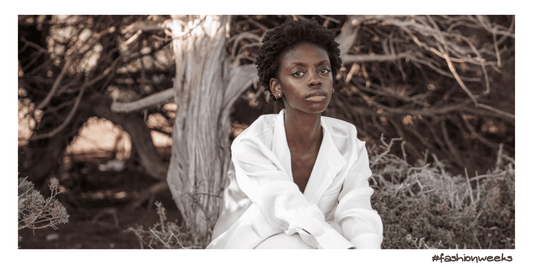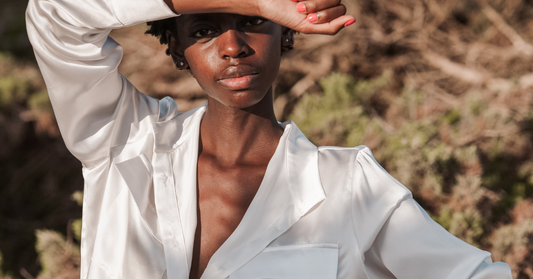MEUNE works with indigenous communities in Argentina who make handwoven textiles for its creations.
MEUNE values its work with Andean communities around craftsmanship and its importance within their traditions.
MEUNE invites you to reflect on the importance and richness that this culture can bring to our world and why it is essential to take an interest in its principles, dynamics, and values.
MEUNE's work with weavers is a priority, and we have proposed to interview them, so they can tell you more about their personal journey in weaving, their culture, and their work with MEUNE.
Today, we are interviewing Ayélen, who worked with MEUNE for the textile decorations of our exceptional pieces, MAUNI.
______________________________________________
INTERVIEW

Can you tell us a little bit about your personal story?
I was born in Bajada Del Agrio, a tiny village near the city of Zapala, but I have always lived in Junín De Los Andes, that's where my roots are. My maternal grandparents lived in a "lof" (Mapuche community) 20 km away. At the age of 18, I moved to the city of Neuquén where I started my recognition process with other "lamgens" (Mapuche brothers and sisters) that I met.
What is the importance of weaving in Mapuche culture?
The Mapuche loom is important for our culture for two reasons. First, it is the way our ancestors made their daily clothing, but it is also an ancient knowledge that must be passed down from generation to preserve it. The ñimins (designs) have their own meanings, which speak of the roots of our people, their history, identity, and the forces of nature that accompany them. Just as the colors chosen for the clothing have their own meanings. That is why weaving is so important in our culture.
How did you start weaving and why?
When I started my recognition process, that is, I recognized myself as Mapuche, I understood how important it is for us to learn to weave. So, I asked for help from my maternal grandmother, she taught me. She was a weaving teacher in a rural school, so she had the patience to teach me.
Are there any other weavers in your family?
Yes, my grandmother Dora and my mother are weavers. My aunt is a spinner.
Do you have any other occupations than weaving?
I am studying to become a history teacher. I also teach Mapuche weaving.
What would you like to see in the future regarding Mapuche weaving?
The truth is, I would like this knowledge to never be lost and for more and more Mapuches to learn to weave.
What is the feeling of seeing your work in MEUNE's creations?
I am very grateful to Nahir (MEUNE's creator) for choosing me to weave these Mapuche handmade textiles. It was a challenge, as I hadn't worked much on the double weaving technique, which allowed me to strengthen my knowledge.
What do you think of the work you are doing with MEUNE?
I find MEUNE's project very interesting. It is about safeguarding and valuing all these ancestral indigenous knowledge and bringing them together with other types of knowledge, other arts, such as clothing design. The visibility of the peoples that is achieved seems so important to me, after so many years of invisibility, silence, and genocide that indigenous peoples have suffered, not only the Mapuche people but all of America.
Are there any changes you would like to see for the Mapuche people?
I would like all lamgens to be able to recognize themselves, to join in this process, which is to save our culture that has been silenced for so many years. But I would also like the state to start respecting and recognizing our rights as a pre-existing people, to stop subjugating us and repressing those who struggle and resist. I would also like the Mapuche people to be listened to more by other inhabitants of the territories. There is an important struggle taking place to denounce fracking and the consequences this extractivism has on the territory in which we all live. It is a struggle for the defense of the territory, life, Mapuches, and non-Mapuches.
__________________________________________________
The transmission and preservation of cultural and natural heritage are at the heart of MEUNE.
Matters of identity and transmission are closely linked. It is through the transmission of culture that the roots of each individual's identity can be built.
Far from wanting to preserve traditional knowledge of Andean peoples in the past, MEUNE is convinced that by collaborating with indigenous communities, we contribute to valuing their heritage, but above all, to continue to make it live.
Living, cultural or natural heritages are an important factor in maintaining cultural diversity in the face of growing globalization and are also a barrier against the massive destruction of natural resources.
Written and translated from Spanish to French and English by Nahir, creator and founder of MEUNE.





